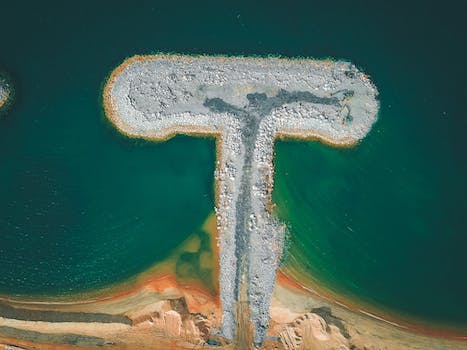-
Table of Contents
- The Definition and Significance of a Landmass Bounded by Sea on Three Sides
- Understanding the Concept of a Peninsula
- Examples of Famous Peninsulas
- The Significance of Peninsulas in Geography
- 1. Strategic Importance
- 2. Biodiversity Hotspots
- 3. Cultural Diversity
- Case Study: The Iberian Peninsula
- Key Takeaways
- Q&A
- 1. What is a landmass bounded by sea on three sides called?
- 2. Why are peninsulas strategically important?
- 3. What are some examples of famous peninsulas?
- 4. How do peninsulas contribute to biodiversity?
- 5. What role do peninsulas play in shaping cultural diversity?

When we think of landforms, we often picture vast continents, islands, or peninsulas. However, there is a unique geographical feature that is less commonly discussed but holds great significance in the world of geography – a landmass bounded by sea on three sides. This distinctive formation, also known as a “peninsula,” plays a crucial role in shaping the landscape, climate, and culture of the regions it encompasses.
Understanding the Concept of a Peninsula
A peninsula is a landmass that is surrounded by water on three sides, with one side connected to a larger landmass. This geographical formation can vary in size, shape, and topography, ranging from small promontories to massive land extensions. Peninsulas can be found on every continent and are often characterized by their proximity to the ocean, diverse ecosystems, and strategic importance.
Examples of Famous Peninsulas
- The Italian Peninsula in Southern Europe, home to the countries of Italy and Vatican City.
- The Arabian Peninsula in Southwest Asia, known for its vast deserts and rich cultural heritage.
- The Korean Peninsula in East Asia, divided between North Korea and South Korea.
- The Yucatán Peninsula in Mexico, famous for its Mayan ruins and pristine beaches.
The Significance of Peninsulas in Geography
Peninsulas play a crucial role in shaping the physical and human geography of the regions they occupy. Here are some key reasons why peninsulas are significant:
1. Strategic Importance
Peninsulas are often strategically important due to their natural defenses and access to maritime trade routes. Throughout history, many peninsulas have been coveted for their geopolitical significance, leading to conflicts and power struggles.
2. Biodiversity Hotspots
Due to their unique position between land and sea, peninsulas are often home to diverse ecosystems and wildlife. These regions support a wide range of plant and animal species, making them important biodiversity hotspots that require conservation efforts.
3. Cultural Diversity
Peninsulas are often characterized by a rich cultural heritage shaped by their maritime connections and historical interactions with neighboring regions. The unique blend of traditions, languages, and customs found on peninsulas reflects their dynamic history and multicultural influences.
Case Study: The Iberian Peninsula
One of the most well-known peninsulas in Europe is the Iberian Peninsula, which is home to the countries of Spain and Portugal. This peninsula has played a significant role in shaping the history and culture of the region, with its diverse landscapes, Mediterranean climate, and vibrant cities attracting millions of tourists each year.
Key Takeaways
- Peninsulas are landmasses bounded by sea on three sides, with one side connected to a larger landmass.
- Peninsulas are significant in geography due to their strategic importance, biodiversity hotspots, and cultural diversity.
- Examples of famous peninsulas include the Italian Peninsula, Arabian Peninsula, Korean Peninsula, and Yucatán Peninsula.
Q&A
1. What is a landmass bounded by sea on three sides called?
A landmass bounded by sea on three sides is referred to as a peninsula.
2. Why are peninsulas strategically important?
Peninsulas are strategically important due to their natural defenses and access to maritime trade routes.
3. What are some examples of famous peninsulas?
Examples of famous peninsulas include the Italian Peninsula, Arabian Peninsula, Korean Peninsula, and Yucatán Peninsula.
4. How do peninsulas contribute to biodiversity?
Peninsulas are home to diverse ecosystems and wildlife, making them important biodiversity hotspots that require conservation efforts.
5. What role do peninsulas play in shaping cultural diversity?
Peninsulas are characterized by a rich cultural heritage shaped by their maritime connections and historical interactions with neighboring regions.






